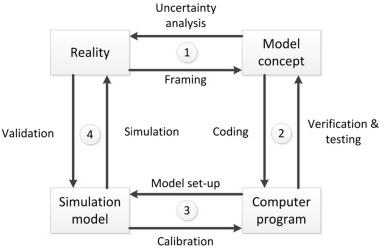Crop Modelling and Climate Change
You are here

Crop Modelling and Climate Change
To be announced
Scope
In this age of artificial intelligence models, mechanistic crop growth models are more important than ever. Plant and crop growth simulation models are now a basic tool for many researchers. Yet, there is a shortage of model developers, scientists with knowledge about underlying mechanistic processes and skills to transform this knowledge into scientific equations and sound models. Such modelling skills are highly demanded in the labour market. Many of the more commonly used mechanistic crop models have a challenge to cope with climate change factors such as increased CO2, droughts and floods, temperature, variability, extreme events, and especially the interaction among these factors. There is, therefore, an urgent need to train the next generation of scientists on the further development of dynamic crop simulation models. This post-graduate course focusses on just that. Crop models refer to models that deal with crops, contrasting with e.g. virtual plant models that are focussing on interactions between individual plants. Together with international senior scientists in crop modelling, participants will take up the challenge to acquaint themselves with the process of crop modelling and to develop new insights to strengthen current crop models. We start with theory and concepts and state-of-the-art lectures on the key processes of crop growth to be modelled (and how) and we will also address the importance of both model calibration and evaluation and associated data requirements.
Participants will learn about the detailed processes that play a role in crop development and growth and the interaction of crops with soil water and nutrients and will evaluate the impact of processes that are/are not included in the selected models in relation to climate change. Limitations of current dynamic crop growth models and challenges that remain will be addressed. The main focus of this course will on the use and accuracy of sole crop simulation models, although aspects of intercropping will be mentioned. Availability of proper data for model development, calibration and evaluation is key in making progress. This topic will receive attention in the course. Participants will be challenged to analyse how existing models can be adapted, calibrated, and evaluated in a modern dynamic simulation environment.
Set-up
The course starts off Sunday afternoon with an introduction to the course, followed by a key-note address in which the invited speaker will give his/her perspective on how models should be adapted to cope with climate change.
After the Sunday dinner there will be a poster carousel in which participants introduce themselves via a poster. Each round lasts 15 minutes (5 minutes introduction and 10 minutes questions and discussion). Prior to the course, participants must submit a poster in PDF, which will be printed by the course office (A1-size). The poster must contain your name and affiliation, title and short description of your research project with one highlight on crop modelling and the reason why you want to participate in this course. Posters will remain in the lecture room throughout the course.
Each day will start off with a set of lectures of 30-45 minutes. Each lecture is followed by a discussion of 15 minutes in which participants challenge the speaker on the presentation and a paper that the speaker provided prior to the course. There will be tutorials as well. In the afternoon groups of 5-6 participants will work on specific tasks set by the organisers.
Course organisers and lecturers
- tbd
General information
| Target Group | The workshop is intended for participants who want to learn about modelling essentials. |
| Group Size | Min. 20 / Max. 24 participants |
| Course duration | 5 days |
| Language of instruction | English |
| Number of credits | 1.5 ECTS |
| Prior knowledge | No prior experience of modelling is required. |
| Location | Wageningen University Campus |
| Options for accommodation | Accommodation is not included in the fee of the course, but there are several possibilities in Wageningen. For non-WUR PE&RC members 50% of the accommodation costs can be reimbursed with a maximum of €30,- per night. For more information contact Sanja Selakovic (sanja.selakovic@wur.nl). For information on B&B's and hotels in Wageningen please visit proefwageningen.nl. Another option is Short Stay Wageningen. Furthermore Airbnb offers several rooms in the area. Finally, there are a number of groups on Facebook where students announce subrent possibilities and things like that. Examples include: Wageningen Room Subrent, Wageningen Room Sublets, and Wageningen Student Plaza. Wageningen has a range of restaurants, but there are also options to have dinner on the University Campus. |
More information
Dr. Claudius van de Vijver (PE&RC)
Email: claudius.vandevijver@wur.nl
Registration of interest
At this moment, this course is not scheduled yet. However, if you register your interest in this activity below, we will inform you as soon as the course is scheduled and registration of participation is opened.

